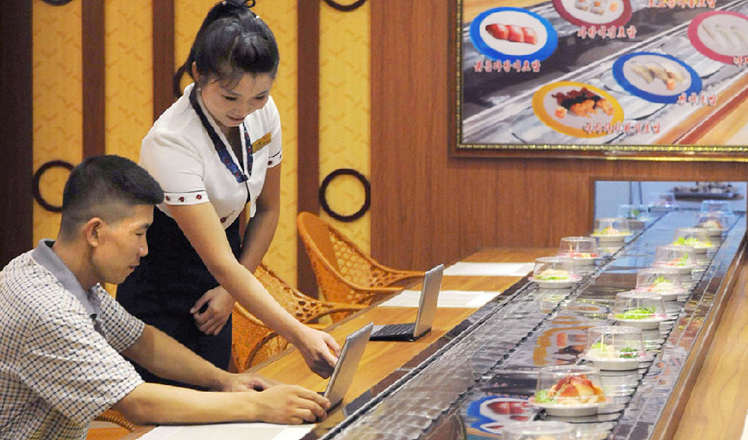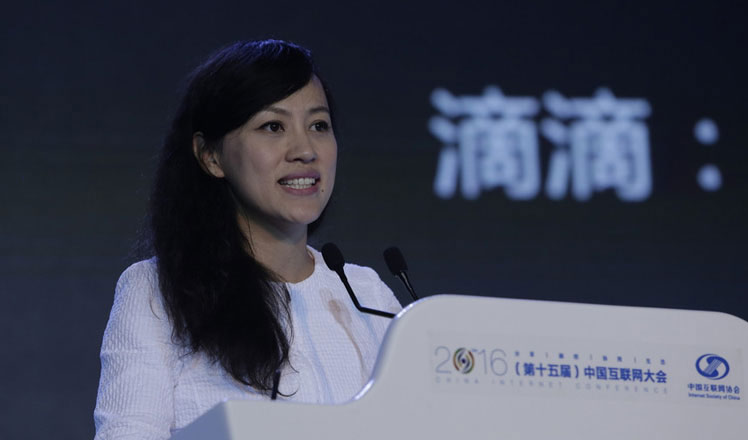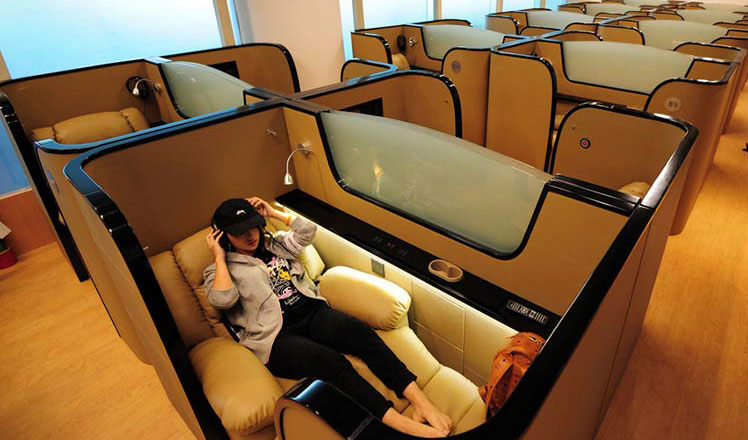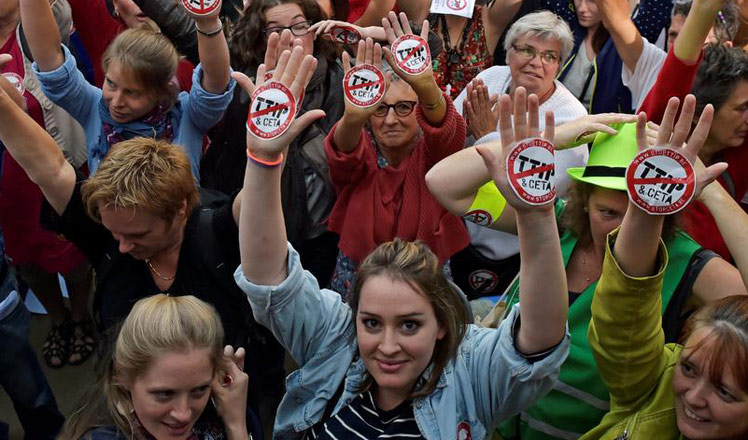Caretaker reluctant to let 'son' go
Updated: 2016-09-22 08:11
By Liu Ce in Shenyang(China Daily)
|
||||||||
|
Zhu Zhenfeng with his 8-year-old "son" Xiao Ao at Anshan Children's Welfare Institute in Anshan, Liaoning province.Provided To China Daily |
A teacher said moving to the US is the best option for an 8-year-old boy who he helped to raise
Zhu Zhenfeng saw his 8-year-old "son" Xiao Ao (assumed name) adopted by a family in the United States on Monday.
The boy with meningomyelocele, a type of spina bifida, was abandoned and sent to Anshan Children's Welfare Institute in 2008. Two years ago, Zhu, the only male special-education teacher at the institute, took Xiao Ao to his own home to give the boy a chance of studying with healthy children.
"He wanted to go to school. But due to his incontinence, no primary school would accept him. So I took him home and found a rural school near my home," the 34-year-old teacher said.
Two years passed in a flash and Xiao Ao became like a son to Zhu. "He is clingy. If I am on a business trip, he calls me many times each day," Zhu said, smiling.
However, they have now parted ways. "I am reluctant to let him go to the US. But I know this is the best choice for him. He can have a normal family life and get better treatment there," Zhu said.
Before the boy left, Zhu took the boy to see all the scenery around Anshan city in Liaoning province. "I hope he has a beautiful memory of China."
Xiao Ao is also unwilling to leave his "father". He asked Zhu to teach him how to say "I want to go back China to see my father" in English. "I will come back one day," said Xiao Ao, crying.
Xiao Ao is not Zhu's only "child". There are more than 100 children in the institute and they all like to call Zhu "dad".
However, some of the children used to refer to him as an "aunt" or "sister", because they had never seen a male teacher.
Zhu was born in a poor village of Huludao city, Liaoning province. Due to a medical accident, he lost his right hand when he was 3 years old.
However, he was not defeated by his condition. In 2002, he became the first undergraduate from his village.
After graduating with honors in 2006, he turned down many job offers and decided to work with disabled people.
Although he prepared himself psychologically for the task, he was shocked by the condition of the orphans in his first class. "There were many children with intellectual disabilities. They could not understand what I was talking about," he recalled.
Thus, he changed his teaching technique and focused on self-discipline.
"They will leave the institute one day. I want to teach them self-reliance. To learn how to live by themselves is very important."
Zhu developed his teaching methods. For children with cerebral palsy, metrical rhymes can help them to learn motor skills. For those with physical problems, he tries to discover their potential talents and help them to learn new skills.
"In my eyes, they are normal children. I try to find their strengths and encourage them," Zhu said.
His efforts paid off. Four orphans have enrolled in universities and 17 have entered technical secondary schools since he started working at the institute, while others have learned skills such as customer services, welding and painting.
"For children, he is not a teacher, but a friend and a father. He stays with them almost every day and does not really have a personal life," said Wang Li, deputy director of the institute.
"I understand that he is doing a meaningful job. But I'm afraid he will not find a girlfriend, which is important at his age," said Zhou Surong, Zhu's mother.
"I used to have some blind dates. But most of the girls could not accept my job. I hope I meet a girl who can understand and support me in the future," Zhu said.
- Greek govt vows to improve refugee situation on island after fire
- Kremlin says hope for restoring truce in Syria 'weak'
- US sends 2 B-1B bombers to ROK after DPRK's nuke test
- Weekend's violent attacks in US could help Trump's campaign
- Syrian army declares end of Russian-US brokered truce
- China supports further reaction to DPRK's latest nuclear test

 8 things you may not know about Autumn Equinox
8 things you may not know about Autumn Equinox
 Italian sets new record with Ferrari on 'miracle road'
Italian sets new record with Ferrari on 'miracle road'
 Students compete for flight attendant jobs in Sichuan
Students compete for flight attendant jobs in Sichuan
 1st Sushi restaurant opens in DPRK
1st Sushi restaurant opens in DPRK
 Top 14 Chinese women in Fortune's ranking
Top 14 Chinese women in Fortune's ranking
 Hangzhou airport offers beds to tired travelers
Hangzhou airport offers beds to tired travelers
 Protesters march against EU trade deals with US
Protesters march against EU trade deals with US
 In photos: Chinese harvest in full swing
In photos: Chinese harvest in full swing
Most Viewed
Editor's Picks

|

|

|

|

|

|
Today's Top News
Trump outlines anti-terror plan, proposing extreme vetting for immigrants
Phelps puts spotlight on cupping
US launches airstrikes against IS targets in Libya's Sirte
Ministry slams US-Korean THAAD deployment
Two police officers shot at protest in Dallas
Abe's blame game reveals his policies failing to get results
Ending wildlife trafficking must be policy priority in Asia
Effects of supply-side reform take time to be seen
US Weekly

|

|








